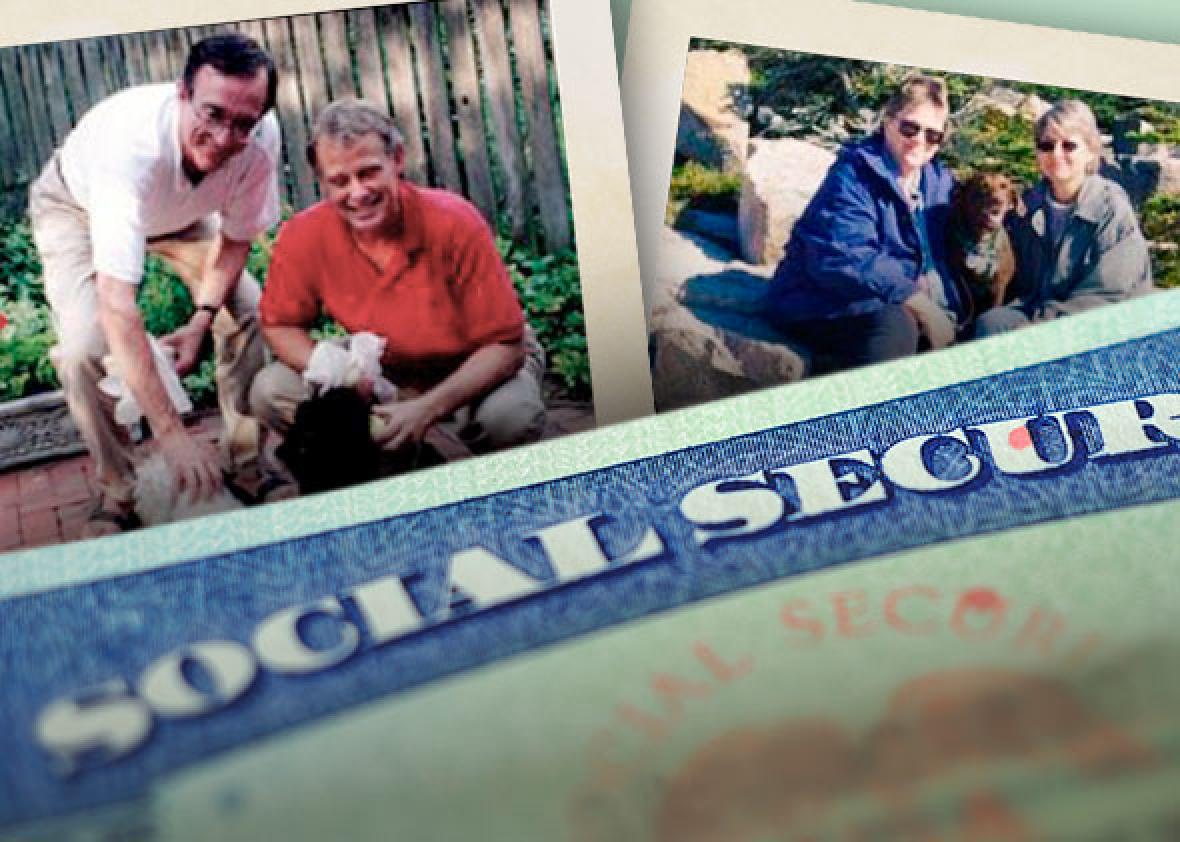Update: Shortly after this post was published, the Department of Justice announced that the Social Security Administration will, in fact, apply Obergefell retroactively.
Are you a voter or legislator who supported a law stripping gays and lesbians of their ability to wed? Were you disappointed when the Supreme Court held that marriage is a fundamental right that states cannot deny to same-sex couples? Rejoice! Some gay couples, and a number of gay widows and widowers, are still being denied Social Security benefits nearly three months after the legality of their same-sex unions were affirmed by the Supreme Court. The oddest part? Nobody’s quite sure why.
In the days of DOMA, the rules governing same-sex couples’ Social Security benefits were simple: They didn’t get any. DOMA barred the federal government from recognizing even state-sanctioned same-sex marriages. Thus, until June 26, 2013, same-sex couples had no reason to apply for benefits. The government had effectively hung a big sign outside the Social Security Administration declaring that gay couples need not apply.
All that changed when the Supreme Court struck down DOMA in United States v. Windsor. Post-Windsor, the federal government happily recognized same-sex unions—for couples living in states with gay marriage. The Social Security Administration, however, decided it could not legally provide spousal benefits to same-sex couples in non-marriage states. Still, the agency encouraged these couples to apply for benefits, hoping that, when marriage became legal in their state, benefits could apply retroactively.

Photos courtesy of Lambda Legal
Now marriage is legal in every state—but the benefits are not yet flowing. A New York Times article chronicles the plight of a lesbian widow and a gay widower whose same-sex spouses died before Windsor and Obergefell. Theoretically, both should be receiving survivor benefits by now. Neither is. Both filed lawsuits challenging their denial of benefits, and in July, the LGBT rights advocacy group Lambda Legal asked the Justice Department why relief had not yet arrived. The government claims to be studying Obergefell and considering its options.
The legal question at the heart of all this is whether Obergefell should apply retroactively. If it did, gay couples, widows, and widowers could collect benefits going back to the year they were first wed. As Lambda informed the Justice Department, the answer to this question is rather obvious. While Supreme Court decisions on constitutional commands do not generally apply retroactively, the court has carved out a few exceptions to this rule. Relevant here, substantive due process rulings—which protect “primary, private individual conduct”—must apply retroactively. Loving v. Virginia was one such ruling. Obergefell was another. Loving applied retroactively. Obergefell should, too.
From the Social Security Administration and Justice Department’s comments, one gets the sense that the government knows it has a constitutional obligation to provide benefits for all gay spouses, widows, and widowers. It’s just trying to figure out how best to implement it. If so, I appreciate its circumspect prudence, but I wish it would hurry up. There are real people across the country suffering serious harms because of their government’s decades-long discrimination. They waited this long to be treated equally. The government shouldn’t now force them to plead for their rights.
